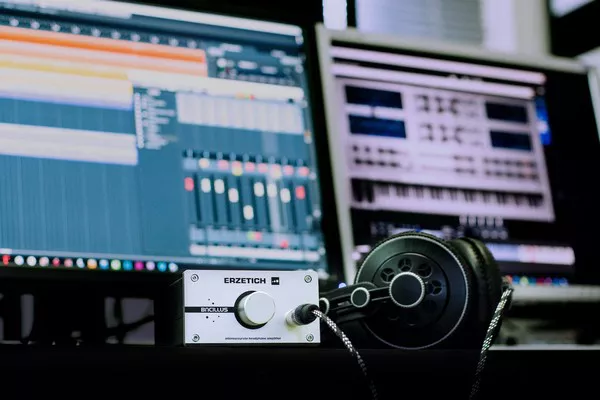Exploring the intricacies of music often leads to discussions on complexity, difficulty, and the various challenges different genres present. From classical compositions demanding virtuosic skills to avant-garde experiments pushing the boundaries of sonic exploration, the question remains: What type of music is the hardest? Delving into this inquiry reveals a multifaceted landscape where technical prowess, emotional depth, and interpretative nuance intersect. Let us embark on a journey through the diverse realms of musical complexity to shed light on this captivating topic.
Defining Complexity in Music
Before delving into the debate, it’s crucial to establish a framework for understanding complexity in music. Complexity can manifest in various forms, including technical intricacy, harmonic sophistication, rhythmic complexity, and interpretative demands. Moreover, the perception of difficulty is subjective, influenced by individual preferences, cultural backgrounds, and personal experiences. Therefore, identifying the hardest type of music necessitates a nuanced approach that considers these diverse elements.
Classical Music: The Epitome of Technical Mastery
Classical music often emerges as a frontrunner in discussions about musical difficulty, owing to its rich history, intricate compositions, and demanding performance standards. What type of music is the hardest? For many, classical repertoire epitomizes musical complexity, requiring performers to navigate intricate passages, execute precise articulation, and master advanced techniques. Works by composers such as Johann Sebastian Bach, Ludwig van Beethoven, and Igor Stravinsky pose formidable challenges to musicians, pushing them to their technical and interpretative limits.
See Also: What are the similarities between Japanese and Chinese music?
Jazz: The Art of Improvisation
In the realm of jazz, improvisation reigns supreme, adding an additional layer of complexity to the musical landscape. What type of music is the hardest? Jazz aficionados argue that navigating the spontaneous creation of melodies, harmonies, and rhythms in real-time presents a unique set of challenges. Jazz musicians must possess not only exceptional technical skills but also a deep understanding of harmonic progressions, melodic structures, and rhythmic intricacies. Moreover, mastering the art of improvisation requires years of practice, ear training, and musical intuition, making it a formidable task for aspiring jazz performers.
Avant-Garde and Experimental Music: Pushing Boundaries
For those seeking the avant-garde, experimental music offers a playground of innovation and complexity. What type of music is the hardest? Avant-garde compositions often defy traditional conventions, embracing dissonance, unconventional instrumentation, and abstract forms. Performers and listeners alike are challenged to explore new sonic territories, grappling with unconventional notation, extended techniques, and unconventional performance practices. While avant-garde music may not appeal to mainstream audiences, its significance in pushing the boundaries of musical expression cannot be overstated.
Contemporary Classical: Bridging Tradition and Innovation
In the contemporary classical sphere, composers continue to push the boundaries of musical complexity, blending traditional techniques with modern innovations. What type of music is the hardest? Contemporary classical compositions often feature intricate rhythmic patterns, unconventional harmonies, and experimental instrumentation, challenging performers to adapt to new stylistic paradigms. Additionally, the interpretation of contemporary works requires a deep understanding of the composer’s intent, inviting performers to engage in dialogue with the music and explore its expressive possibilities.
World Music: Cultural Complexity
Exploring musical traditions from around the world reveals a rich tapestry of cultural diversity and complexity. What type of music is the hardest? World music encompasses a vast array of styles, from the intricate rhythms of Indian classical music to the virtuosic techniques of flamenco guitar. Each tradition brings its own set of challenges, rooted in centuries of cultural heritage and artistic innovation. Mastering world music requires not only technical proficiency but also a deep appreciation for cultural context, allowing performers to embody the essence of each tradition authentically.
Electronic Music: Technological Innovation
In the realm of electronic music, technological innovation intersects with artistic expression, creating a dynamic landscape of sonic possibilities. What type of music is the hardest? Electronic music production involves mastering complex software, synthesizers, and sound design techniques, requiring a blend of technical expertise and creative vision. Moreover, live performance in the electronic genre presents its own set of challenges, as artists navigate the intricacies of real-time improvisation, DJing, and live remixing. Despite its reliance on technology, electronic music demands a high level of skill and artistry, pushing the boundaries of what is musically possible.
Conclusion: Complexity in Diversity
In conclusion, the question “What type of music is the hardest?” defies a simple answer, as musical complexity manifests in diverse forms across genres and traditions. Classical music challenges performers with its technical demands and interpretative depth, while jazz requires mastery of improvisation and spontaneity. Avant-garde and experimental music push the boundaries of sonic exploration, while contemporary classical compositions bridge tradition and innovation. World music celebrates cultural diversity and complexity, and electronic music embraces technological innovation and artistic expression. Ultimately, the hardest type of music is subjective, reflecting individual perspectives, experiences, and artistic aspirations. However, by embracing the diversity of musical expression, we enrich our understanding of the profound complexities inherent in the art form we collectively cherish.
























